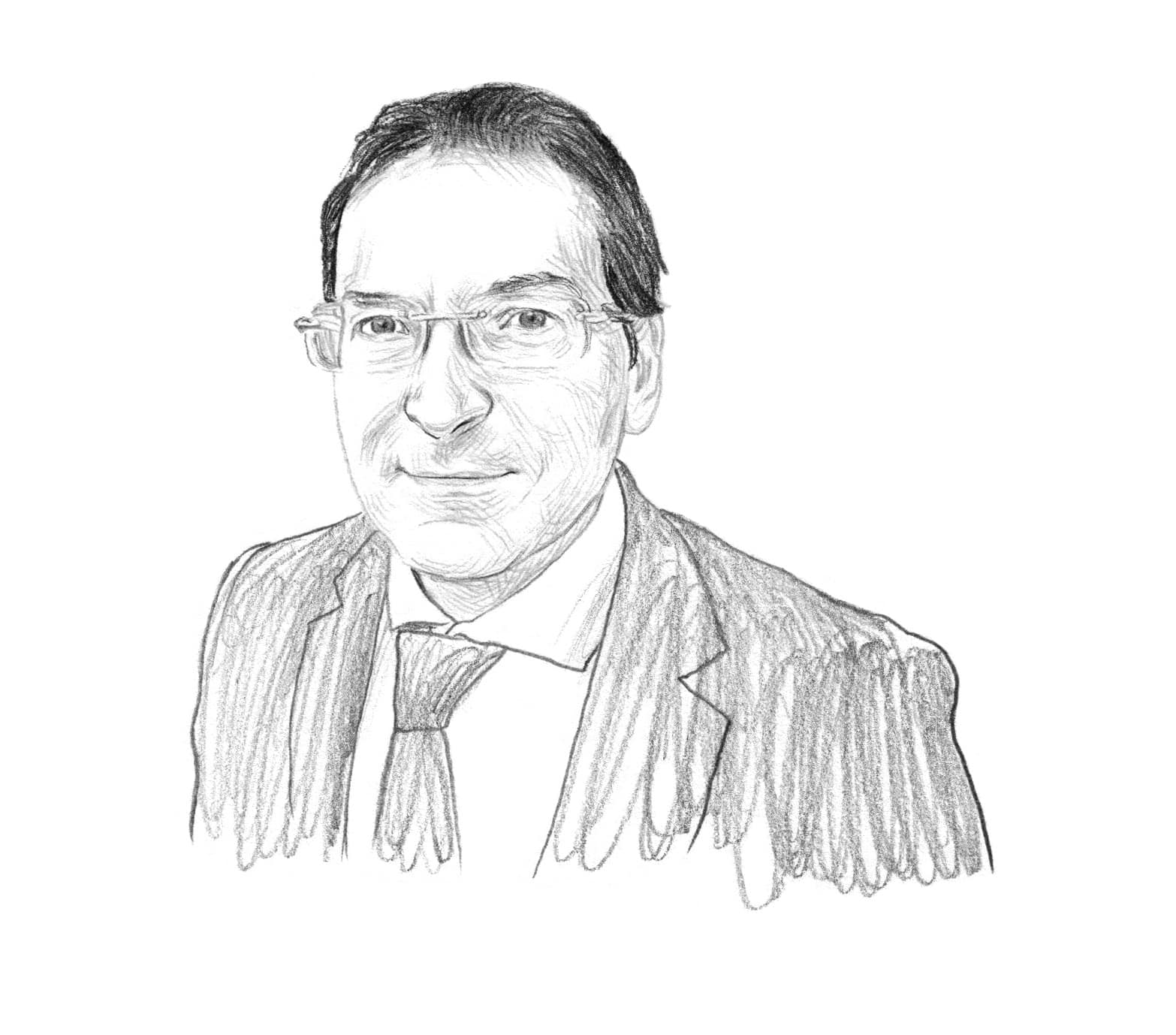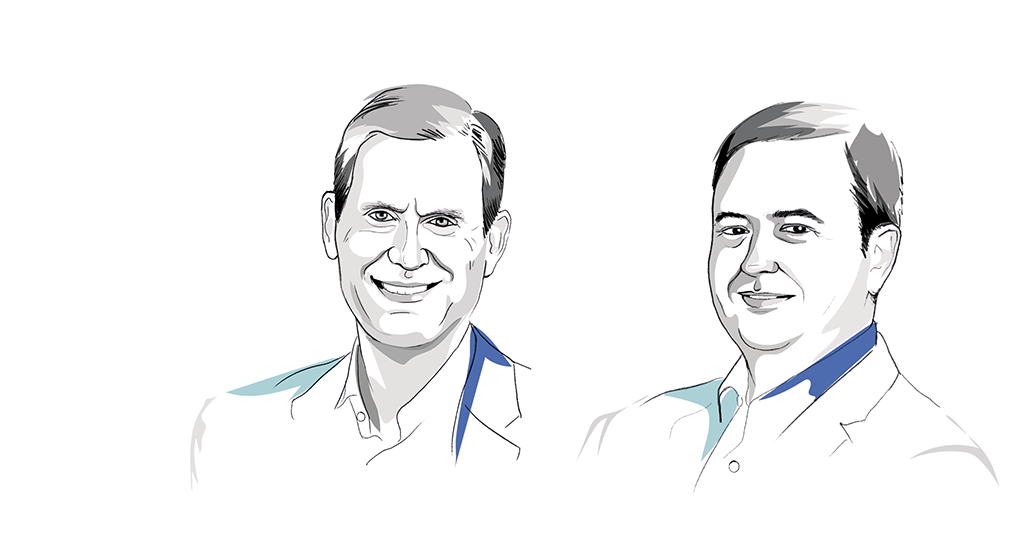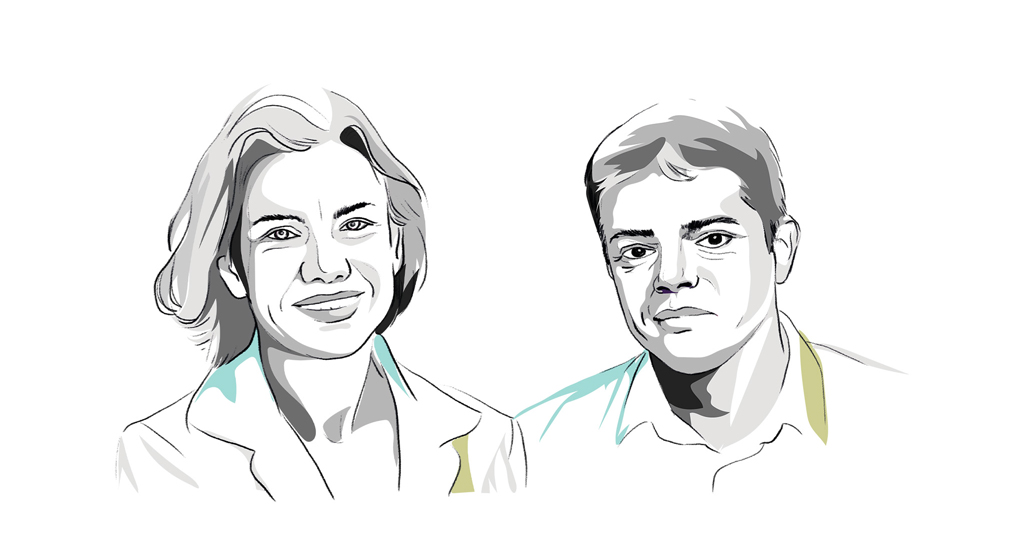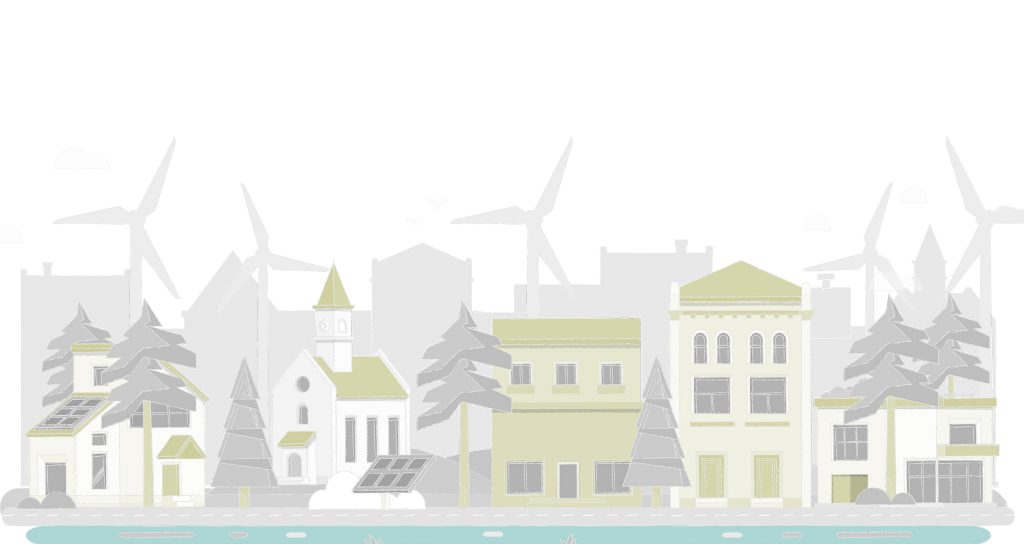At a time when we are seeing a significant increase in the environmental impact of digital technology, businesses must take their share of responsibility by focusing on green IT practices and adopting a “digital sobriety” approach. Hugues Ferreboeuf, associate director of Virtus Management, who in 2018 led the “Lean ICT: towards digital sobriety” report produced by think tank The Shift Project, and Dominique Tessaro, Chief Information Officer at VINCI Energies, share their views on the subject.
Is the crisis caused by the COVID-19 pandemic likely to change the way in which businesses address the issue of energy restraint?
Dominique Tessaro. I don’t think it will change ecological approaches in business since they are built to be long term. We’re talking about actions with 10 or 20-year timeframes. The issue will probably receive a little less attention this year, but initiatives are now embedded in strategies.
In its report published in 2018, The Shift Project points to the negative effects that the transition to digital technology is having on the environment. Should we be alarmed?
Hugues Ferreboeuf. Let me start by saying that we are at last achieving more clarity on the issue. In fact, it was a lack of clarity that led The Shift Project to look into it three years ago. At the time, it was difficult to form an opinion between two opposing views. For some, the benefits of energy efficiency offset the negative effects of digital use on the environment. While for others, the explosion of digital data, when compared with the significant but limited technological gains involved, is a portent of serious problems. We therefore launched a series of studies, hearings and analyses before publishing the “Towards digital sobriety” report at the end of 2018 – the outcomes of which have since been corroborated by further analyses. Three figures sum up the situation. First, digital carbon emissions are increasing by 8% per year. Second, the digital industry emits 50% more greenhouse gases than the aviation industry. Third, at least 50% of these emissions are directly attributable to the production of electronic equipment. Looking beyond these figures, there is a consensus today that not only is the environmental impact of digital technology growing but also that this trend cannot continue if there is to be any chance of keeping global warming below 2 degrees between now and the end of the century.
“Businesses must reflect on what generates this ‘need’ for ever more servers, ever more devices.”
Dominique Tessaro. This trend, which is one that I can confirm as CIO, involves a so-called rebound effect: the more tools are developed, the more behaviours are generated and the more people want to use data. Ten years ago, the staff in my IT teams all had a laptop. Today, they have a laptop and up to three additional screens. The reason for this is that production costs have dropped dramatically: a 22-inch screen is currently available for €125. The iPhone was only introduced 13 years ago, but 90% of children going into secondary school now have a smartphone. In short, we’ve created behaviours that we should all think twice about as citizens, employees, company managers and CIOs. Are we on the right path? The answer is clearly no. That being the case, how can we be more careful in our use of technology and how can we move towards digital sobriety?
Speaking of companies, how have Green IT processes worked out for them?
Hugues Ferreboeuf. When companies started adopting Green IT around 15 years ago, it was primarily aimed at optimising infrastructure. Since then, digital technology has become so pervasive that this approach, although still valid, is no longer enough. Businesses must reflect on what generates this “need” for ever more servers, ever more devices.
Dominique Tessaro. I agree that Green IT was initially a way to negotiate lower prices and that the real issue was overlooked. It even disappeared off the radar as far as CIOs and digital tenders were concerned. However, I notice that it resurfaced in 2018, with a real change of course taking place in 2019. Perhaps due to the “Greta Thunberg effect”?
Is business as a whole starting to become more aware of the issue?
Hugues Ferreboeuf. Like Dominique, I’ve noticed a significant increase in awareness over the past year and a half. This was triggered by the media, which, attuned to the climate crisis, gave considerable coverage to studies published on the subject, including that of The Shift Project which followed on the heels of the Intergovernmental Panel on Climate Change’s report on global warming of 1.5°C. Digitally-driven companies have also turned a corner. The recent launch by Cigref* of a working group on digital sobriety is a clear reflection of this. We are also seeing public administrations and politicians starting to become more aware. The anti-waste and circular economy law of 10 February 2020 will, for example, require telecoms providers to add each customer’s data usage and the equivalent in greenhouse gas emissions to bills. Lastly, among digital providers, there is a realisation – to a certain extent at least – that they are part of the problem and that consumers may soon choose them on the basis of environmental criteria.
Would you say is France at the forefront or lagging behind?
Hugues Ferreboeuf. France falls within the group of northern European countries where awareness is high. In southern Europe, awareness is much lower, and in China and the US it is almost non-existent. In fact, there are huge disparities in terms of digital use patterns worldwide. It’s worth noting that half of the world’s population does not have access to the internet. And for the other half, digital use is largely concentrated among the 330 million Americans, 445 million Europeans, 125 million Japanese, and a proportion of the 1.3 billion Chinese. For reference, in American households, the number of digital devices is 13 per person (compared with one or two in countries like Albania). A study carried out by the French Agency for the Environment and Energy Management (ADEME) established that the number of devices in French households stands at 35.
Dominique, what is the status at VINCI Energies?
Dominique Tessaro. Expectations are high in my teams, especially among the youngest members of staff. They want to get involved and are ready to be trained. After a period of 5 years in which we focused heavily on information security, which meant incorporating a “security by design” approach, we are moving into a Green IT phase over the next 10 years. And as was exactly the case with security, which was initially referred to as a high-tech concern, Green IT is set to become an issue taken up by general management. The Chairman and CEO of the VINCI Group, Xavier Huillard, has announced that the Group aims to reduce CO2 emissions by 40% within the next 10 years. This means that digital sobriety will concern all employees in the coming decade. At VINCI Energies, we plan to measure, analyse and publish figures, and find areas for improvement.
“Digital sobriety will concern all employees in the coming decade. At VINCI Energies, we plan to measure, analyse and publish figures, and find areas for improvement.”
What actions can be taken as of now?
Dominique Tessaro. The immediate priority is to reduce the number of devices per person. We will be sending all our staff a questionnaire to assess their arrangements in this respect. Moreover, as CIO, I am prepared – going forward – to spend €2,000 on computers instead of the €1,300 we currently spend if I can be assured they will have a lifespan of 8 years. That will force manufacturers to completely overhaul their production chain, favouring quality over quantity and ensuring publishers move away from planned obsolescence. Incidentally, if we stop changing our equipment every 5 minutes, we’ll save ourselves security problems. It’s a win-win situation all-round.
Hugues Ferreboeuf. Market forces will inevitably come into play. When half of the CAC 40 companies (the French stock market index) set the same conditions for suppliers, they won’t have any option but to meet them.
Is the sobriety approach compatible with the need for efficiency?
Hugues Ferreboeuf. Sobriety is by no means incompatible with efficiency, or indeed security. Quite the opposite! I think we’ve got to a point where our behaviour is becoming counterproductive in terms of efficiency. A study found that the average attention span, without any interruptions, of a manager in a company is no more than 90 seconds… We must get back to a situation where there is more room for reason and simplicity, and we must be capable of setting limits for ourselves when we use digital devices. Netflix and YouTube videos currently account for 80% of internet traffic. It’s not a question of denying the economic benefits of digital technology, but of making choices. Do we want to incorporate artificial intelligence into every single everyday experience? That’s the option the Chinese have taken. Do we want Europe to follow the same path? The same question applies to 5G, whose primary function is to provide a solution to the saturation of the 4G network in major cities over the next two years. Will we need to cover the whole country, including the most rural areas?
“Sobriety is by no means incompatible with efficiency, or indeed security. Quite the opposite!”
Should businesses expect a political injunction or regulatory framework to be introduced?
Dominique Tessaro. There must be a political response. A carbon tax has been under discussion for 10 years now: it’s time to move forward and take action. There is also an urgent need to tackle the issue of recycling electronic waste that is being dumped illegally in Africa, where it is broken down by children who are exposed to all sorts of toxic elements without anyone batting an eyelid. For a mobile phone worth €1,000, we are only paying a few cents of WEEE (waste electrical and electronic equipment) eco-tax. We must increase it to €100 per electronic device so that we can build recycling plants in France!
“A carbon tax has been under discussion for 10 years now: it’s time to move forward and take action.”
Hugues Ferreboeuf. Politicians are starting to get involved, but the measures announced must be clearer, bolder and more meaningful. We shouldn’t kid ourselves: digital sobriety will deprive us of some of our comforts. But the more we wait, the more difficult it will be. If we want future generations in 30 years’ time to have even a modest level of comfort, then we must quickly come round to the idea that we can’t increase our own levels indefinitely.
Is the explosion in COVID-19-related remote working “good” or “bad” news in terms of digital energy consumption?
Dominique Tessaro. To be honest, the jury is still out on that. The most critical point as regards energy impact is employee equipment, so first and foremost the production of electronic devices. If we “double” our screens at home and at work, the outcome will be disastrous. However, if we take this opportunity to review our fleet of PCs so as to make them more resilient and extend their lifespan, then that could be a positive thing.
*Association representing the largest French companies and public administrations, which supports its members by organising, running and summarising joint discussions on digital issues.
10/09/2020




